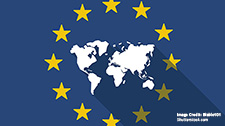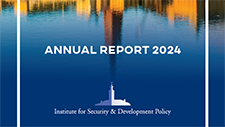Caucasus & Eastern Europe

The countries of the European Union’s Eastern Partnership are key areas of European security. The three states of the South Caucasus – Armenia, Azerbaijan and Georgia – and three countries located between the EU and Russia – Belarus, Moldova and Ukraine – have been independent since 1991, and display a wide variety of economic and political systems as well as foreign policy choices. The region lacks credible security arrangements, and is the subject of a growing geopolitical rivalry between the West and Russia. Four of the states – Azerbaijan, Georgia, Moldova and Ukraine, have unresolved territorial disputes on their territory, which form some of the leading challenges to European security.
ISDP’s activities in the Caucasus and Eastern Europe focus on research and analysis of the political development and regional security in the region, in particular unresolved conflicts, relations with the EU and U.S., as well as Russian foreign policy in the region. Work on the Caucasus region is conducted within the framework of the Joint Center with the Central Asia-Caucasus Institute in Washington, D.C., including the publication of the biweekly Central Asia-Caucasus Analyst, a leading sources of analysis on regional developments.
Related News
Related Publications
-
Armenia and the Belt and Road Initiative: Perspectives from Europe, the Caucasus, and Central Asia
This co-edited book analyses the opportunities and challenges enabled for Armenia by China’s Belt and Road Initiative (BRI) in the framework of economic cooperation, policy diversification, social inclusion, and regional […]
-
The EU’s Response to Pahalgam: A Missed Opportunity
The recent terrorist attack in Pahalgam was not just another act of violence—it was a chilling reminder of the brutal threats that still plague the Indian sub-continent. Yet, while many […]
-
Is Central Asia Stable? Conflict Risks and Drivers of Instability
In 2022, violence erupted in four different areas of Central Asia. These episodes of violence were very different from each other, and all were contained within days or weeks. The […]
-
ISDP Annual Report 2024
ISDP’s Annual Report for the year 2024. 2024 has been a tumultuous year, in which tensions have been continuously mounting and conflicts have been raging. Many of these developments have […]
-
China, Russia and Undersea Cable Vulnerability: Shoring Up Protection
The global undersea cable network, carrying up to 99 percent of international internet traffic, faces increasing vulnerabilities. Recent incidents in the Baltic Sea and around Taiwan highlight the urgent need […]




